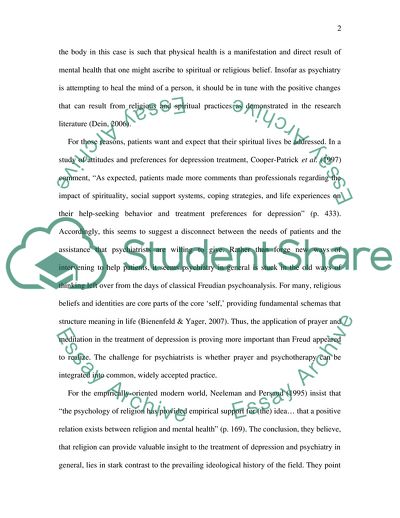Cite this document
(The Role of Spirituality in the Treatment of Depression Literature review Example | Topics and Well Written Essays - 1500 words, n.d.)
The Role of Spirituality in the Treatment of Depression Literature review Example | Topics and Well Written Essays - 1500 words. https://studentshare.org/psychology/1756236-the-role-of-spirituality-in-the-treatment-of-depression
The Role of Spirituality in the Treatment of Depression Literature review Example | Topics and Well Written Essays - 1500 words. https://studentshare.org/psychology/1756236-the-role-of-spirituality-in-the-treatment-of-depression
(The Role of Spirituality in the Treatment of Depression Literature Review Example | Topics and Well Written Essays - 1500 Words)
The Role of Spirituality in the Treatment of Depression Literature Review Example | Topics and Well Written Essays - 1500 Words. https://studentshare.org/psychology/1756236-the-role-of-spirituality-in-the-treatment-of-depression.
The Role of Spirituality in the Treatment of Depression Literature Review Example | Topics and Well Written Essays - 1500 Words. https://studentshare.org/psychology/1756236-the-role-of-spirituality-in-the-treatment-of-depression.
“The Role of Spirituality in the Treatment of Depression Literature Review Example | Topics and Well Written Essays - 1500 Words”. https://studentshare.org/psychology/1756236-the-role-of-spirituality-in-the-treatment-of-depression.


